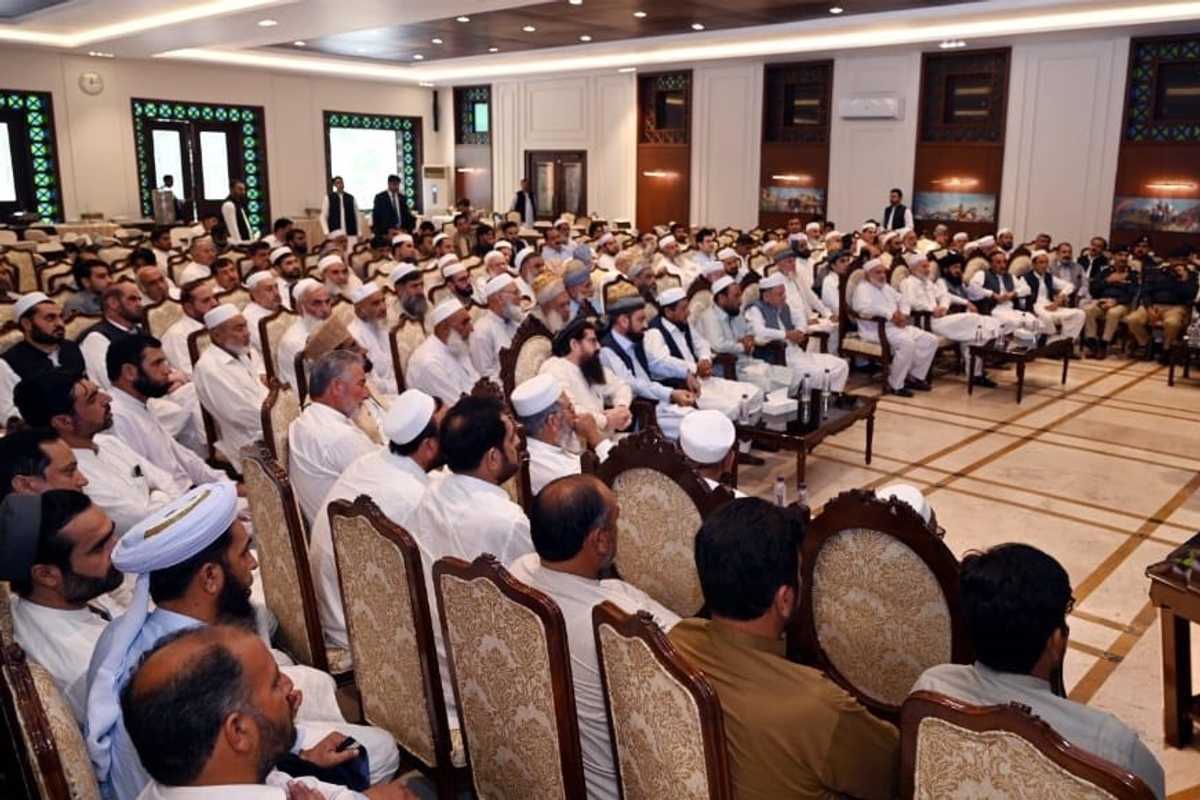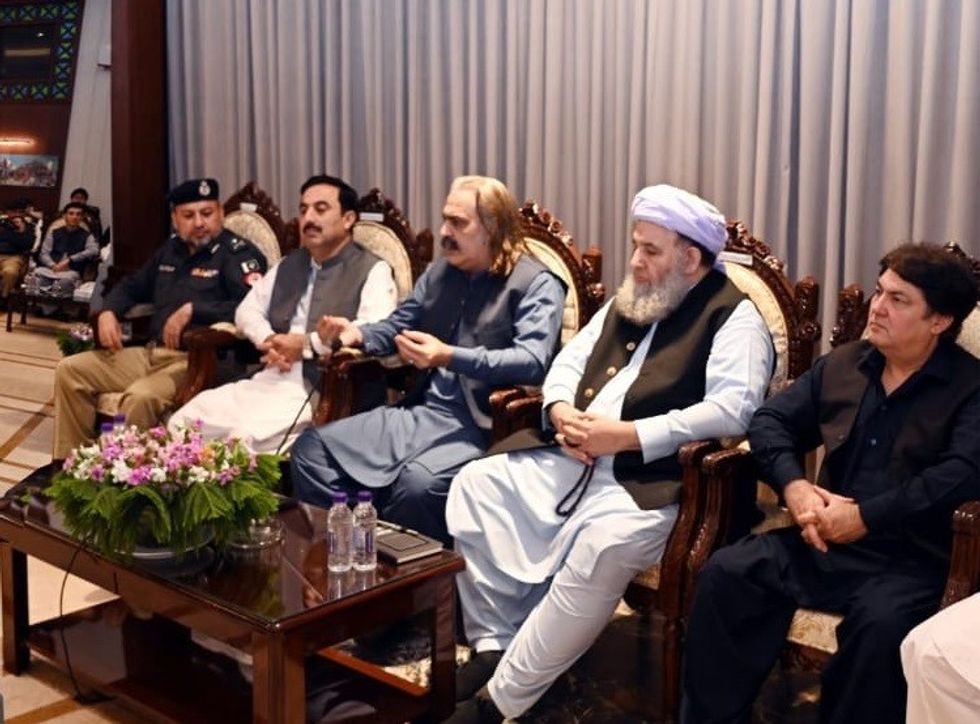Tribal elders in Pakistan reject military operation amid fragile ceasefire with TTP
Jirga participants oppose displacement of locals, calling militants enemies of all and urging a united civilian front against terrorism

Kamran Ali
Correspondent Nukta
Kamran Ali, a seasoned journalist from Khyber Pakhtunkhwa, Pakistan, has a decade of experience covering terrorism, human rights, politics, economy, climate change, culture, and sports. With an MS in Media Studies, he has worked across print, radio, TV, and digital media, producing investigative reports and co-hosting shows that highlight critical issues.

Khyber Pakhtunkhwa Chief Minister Ali Amin Gandapur (not pictured) addresses a high-level consultative jirga to address the deteriorating law and order situation.
Nukta
Tribal elders in Pakistan’s northwestern Bajaur district categorically rejected on Monday the prospect of a new military operation and the resulting mass displacement, even as a fragile ceasefire continues amid ongoing negotiations between the Bajaur Aman Jirga (Bajaur Peace Council) and the proscribed Tehreek-e-Taliban Pakistan (TTP).
The army had launched a counter-terror operation in Bajaur’s Mamund Tehsil on July 29, imposing a curfew and targeting 16 villages. Civilian casualties triggered widespread protests, prompting a pause in the offensive just a day later. A temporary ceasefire was agreed, with talks now ongoing between tribal elders and the TTP.
Gandapur holds high-level jirga on security crisis
Against this backdrop, Khyber Pakhtunkhwa Chief Minister Ali Amin Gandapur called a high-level consultative jirga to address the deteriorating law and order situation. The meeting brought together tribal elders, political party leaders, lawmakers from Bajaur, and senior officials including the provincial Chief Secretary, Inspector General of Police, and top law enforcement personnel.
Participants in the jirga unanimously opposed any renewed military operation or civilian displacement, declaring militant groups as enemies of all and calling for a united civilian front against terrorism.
They also proposed the creation of a Grand Peace Council - comprising federal and provincial authorities, tribal leaders, and other stakeholders - to initiate meaningful dialogue with the Afghan government for long-term regional stability.

‘Force will only bring more destruction’
Addressing the jirga, former lawmaker and Bajaur Aman Jirga member Gul Zafar condemned forced evictions in conflict-hit areas. He warned that demolishing ancestral homes risked wider instability.
“Not even the chief minister’s or prime minister’s residence would be spared,” he said. “We cannot rebuild our homes every decade. We will not allow our ancestral lands to be destroyed.”
JUI-F leader and former senator Maulana Abdul Rasheed questioned the government’s apparent mixed messaging.
“You say there will be no military operation or displacement, yet IDP camps have been set up, tents sent to Bajaur, and schools shut down for displaced families,” he said.
“Are you truly representing the people -- or someone else?”
Sahibzada Haroon Rasheed, a Jamaat-e-Islami leader and head of the Bajaur Aman Jirga, echoed this stance, stating that military action was not a viable path to peace.
“We will not support any kind of military operation in Bajaur. Such actions only bring destruction,” he said. “Peace requires a complete rethink by the government and military. Dialogue - not force - will deliver lasting peace.”
Ceasefire holds after operation met local resistance
The military launched an operation in Bajaur’s Tehsil Mamund on July 29, enforcing a curfew and targeting 16 villages. The operation resulted in the deaths of three civilians and injuries to 11 others.
In response, local resistance efforts led to direct negotiations between tribal elders and the TTP. A temporary ceasefire was agreed just a day after the operation began, and three rounds of talks have since been held.
According to Bajaur Aman Jirga member Najeeb Ullah Mamund, the jirga put forward two main demands to the TTP:
- Vacate the area and return to Afghanistan (which the TTP rejected).
- Refrain from attacking security forces (which the TTP conditionally accepted, provided the military does not engage them first).
Mamund said further talks may be held soon.
“The jirga has decided to continue the negotiation process and may meet the TTP again tomorrow,” he said.
Gul Zafar expressed cautious optimism about the ongoing negotiations, saying the jirga was committed to a peaceful resolution.
Skepticism over TTP's role in talks
However, terrorism expert Shamim Shahid cast doubt on the efficacy of the negotiations.
“Local TTP commanders lack real decision-making power,” he told Nukta.
“They’re paid to carry out activities, not to make political commitments. Any agreement with them is unlikely to be meaningful.”
Thousands at risk of displacement
According to the district administration, any resumption of military operations could displace nearly 18,000 families in Tehsil Mamund. Some residents have already begun relocating, and the government has set up temporary camps to host the displaced.
The humanitarian fallout adds pressure on both provincial and federal authorities to resolve the crisis through non-military means and avoid repeating the cycles of violence and displacement seen in the past two decades.







Comments
See what people are discussing